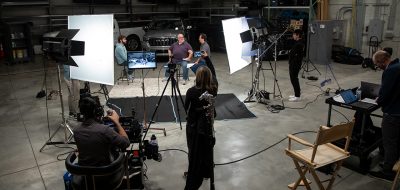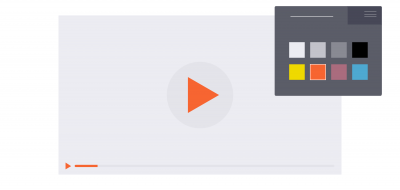If you need to make a profit from your event, what are the options for online events? As with offline events, the main options are “charging participants” and “advertising sponsorship fees”. In this article, we will introduce the points specific to online events for these two methods. Please refer to them according to the characteristics of the event you are planning.
__Table of Contents__
– [1. Various methods of charging for online events**](#1-)
– [2. Types of advertising sponsorship fees for online events](#2-)
– [3. Participant viewing data is a unique added value of online events](#3-)
– [4. Creating new value by utilizing data unique to online events](#4-)
## 1. Various methods of charging for online events
Making events chargeable is probably the most easily imagined method of monetization. This is a method of charging participants when they sign up for an event. With online event payment models, it is possible to have flexibility in monetization depending on the structure of the session. In particular, there are methods of charging only for sessions that are particularly popular or in high demand, and methods of preparing multiple plans and changing the number of sessions that can be attended for each plan. It is also possible to organize tracks by session type and have a model where you can charge for each track.
## 2. Types of advertising sponsorship fees for online events
Advertising sponsorship fees” are a method of monetization that involves providing advertising slots on the online event page to advertising sponsors. The four main methods of monetization are as follows
– 1. Advertising sponsor slots for the entire event
– 2. Advertising sponsor slots for specific sessions
– 3. Speaking slots
– 4. Advertising sponsor slots during the event or before/after sessions
Although each of these can be treated as a separate option, in general, it is common to combine speaking slots with other options, such as (1) and (3) or (3) and (4).
1. is an advertising space that maximizes exposure for advertising sponsors. The website, which is the venue for the online event, is a place that participants will visit at least once. The benefits of having a logo posted there are easy for advertising sponsors to understand. Advertising spaces are sold according to the level of advertising effectiveness (time of day, session), with ranks such as “Gold”, “Silver” and “Bronze” established for advertising spaces. It is also possible to consider methods such as posting the company name or service name in the event name (e.g. Sponsored by ….).
2. is a menu item that allows the logo of the advertising sponsor company to be displayed in a location that is visible to viewers on the website where the specified session is distributed (such as above, below, or within the video player). This provides the sponsor with the benefit of being able to more effectively expose their company by providing an advertising space that allows them to pinpoint and select sessions that are highly compatible with their products and services.
3. is a method of selling the event session slots themselves. The advertising sponsor company that purchases the session slot can freely coordinate the content of the session and provide it to the participants. For the sponsor, this has the advantage of allowing them to present examples, trends and know-how that are directly linked to their company’s products and services, so they can deliver their message to the participants.
4. is an advertising slot where you can deliver an overview of the advertising sponsor company or a video introducing their services, etc., before the main event starts, in the same way as a commercial. This is particularly effective for raising awareness before a session that is likely to attract a lot of attention, as there will be many viewers waiting.
## 3. Participant viewing data is a unique added value of online events
The biggest difference between online and offline events is the various types of data that can be obtained. Even for the same lead information, you can obtain data not only on whether or not the content was viewed, but also on how long it was viewed for. This data will be seen as a useful added value not only by the event organizer, but also by the advertising sponsor companies. (For more information on the types of data, please refer to “[Data‘ and ’After-follow-up’ that hold the key to the success or failure of online events](https://www.brightcove.com/ja/resources/blog/thorough_understanding_of_virtual_events_4)
More specifically, how can data be monetized? It is better to think of data as a way of supporting sponsorship costs rather than selling it on its own. In the case of online events, it is possible to track which sessions participants watched and for how long. Of course, it is undeniable that participants may be doing other things while watching sessions or may leave their seats. However, there is a certain degree of rationality in thinking that the degree of interest of participants is proportional to the amount of time they watch. Analyzing the level of interest of participants from viewing data and providing feedback to sponsors is a feature unique to online events.
## 4. Creating new value through the use of data unique to online events
In addition to the conventional information such as the names and companies of participants, online events can provide additional value to advertising sponsors in the form of information such as the sessions viewed by participants, the completion rate for each session, and the timing of dropouts. In addition, it may be possible to provide information such as which pages in the online event website were viewed before and after the event. Sponsors can use this information to rank leads and follow up more appropriately. This kind of data utilization is unique to online events. While traditional indicators such as the number of session applications and whether or not participants attended are important, please create new value by utilizing data that can only be obtained through online events.




